
Wutachschlucht, the flow of water is the sonic presence of Time
With the eradication of Catholicism in North West Europe by Protestantism, practices of Pilgrimage to holy places were abandoned. With the advent of Secularism and ‘The Grand Tour’ of the well-to-do, pilgrimage re-evolved as ‘tourism’. Ralph Waldo Emerson’s two Essays on ‘Nature’ ‘in 1836’ and especially 1844 read as a timely account of this period, when Lourdes is replaced with trees and streams by intellectuals for the cleansing of the soul.
Enjoy my photography from the Black Forest in Germany, where the Wutachslucht (‘angry stream’) showed Time at work, the flow of water as the sonic presence of continuous creation and decay. No ‘Perfect State’ is ever reached, but the suggestion of it is constant in the air.
Summary:
- Wat Emerson laments is that though ‘enjoying’ Nature, the great ‘It’ (spiritual satisfaction to the fullest) still evades him.
-
- The element evading Emerson is Time itself, like the flow of a stream.
- One reason I advocate the replacement of ‘ecology’ by oldfashioned ‘Natural History’, is that Time is the humbling element of nature that ‘ecology’ leaves out of the equation.
- Ecology has the pretention of ‘systems’ that can be optimised. It’s adherents of globalist environmentalism use this pretension to political purposes.
- Romanticism of writers like Emerson is not a ‘reaction’ to Enlightenment but it’s secular addition, the feminine side of the ‘male’ reverence of ‘Reason’
- The political doctrine of ‘environmentalism’ and it’s pretensions of ‘safe’ optimised eco-systems needs replacement by the local and more humbling perspective, where Nature can by enjoyed as if entering a cathedral, experiencing something constant through the ages
-
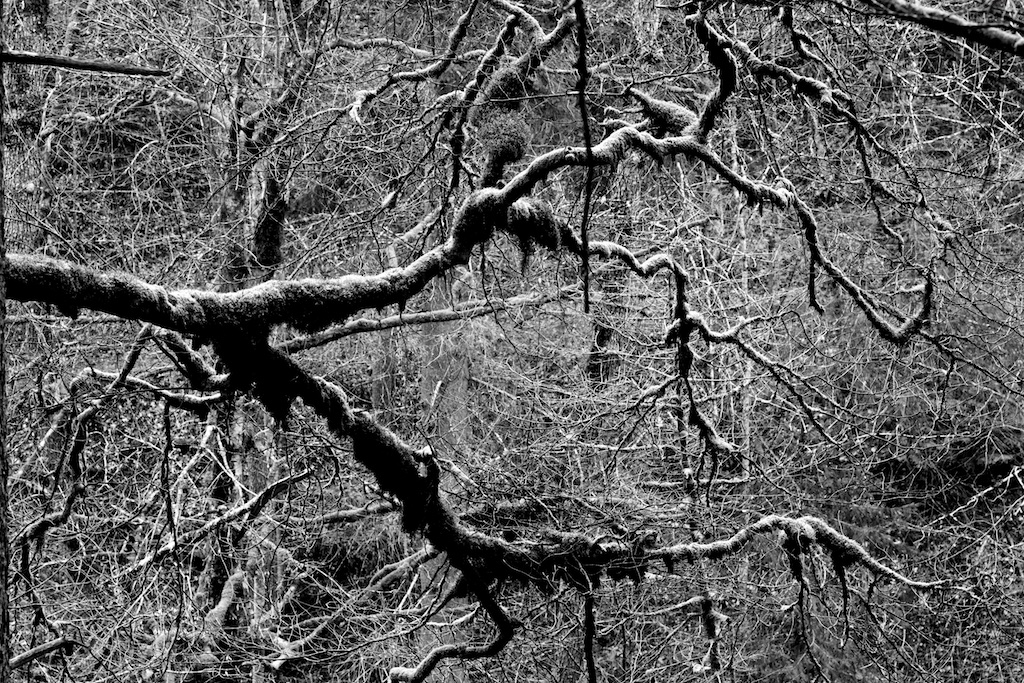
We cannot ‘grab’ Time
Nature seperating the initiated from the profane
Official history-writing considers ‘Romanticism’ as a reaction to The Enlightenment, which is profiled as the age of ‘Reason’. And ‘Reason’ as opposed to emotion and romanticism. Reality seems more dialectic. If The Enlightenment- the ‘male’ part- is characterized by the Reverence of ‘The Light’ of Reason/Science (Lucifer the Light-Bearer, see also the Statue of Liberty), then Romanticism is more it’s secular ‘female’ counterpart.
The hungry soul seeking saturation of it’s unsatiable appetite, soulsearching what he cannot grasp with ‘Reason’. ( = the limited, yet most fashionable knowledge of the day, dressed as ‘Truth’ by social confirmation, egotism and short-sightedness). Without being chased there by ‘Reason’, the Romanticist would not have been found in the places were Secularism has driven him.
Johan Wolfgang Goethe was not only writer of ‘Das Leiden des Jungen Werther’s‘ – the epic of tragic Romanticism. But also member of the Enlightenment-Fundamentalist cult ‘Illuminati’ ( = The Enlightened) founded in Bayern, propagating the monopoly of The Science as the only rational arbiter in human affairs (the doctrine of ‘Scientism’ still present in current Environmentalism).
Goethe eagerly tried a career as a scientist.
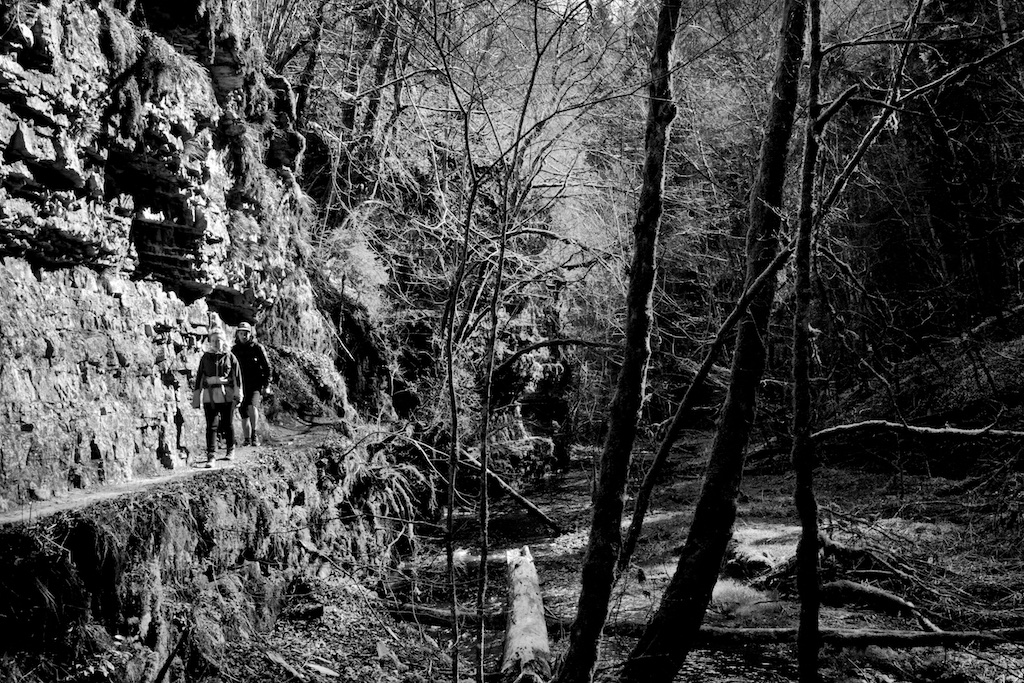
Wanderers at the Schlucht
Ralph Waldo Emerson (1803-1882) became a ‘critical’ admirer of Goethe, as can be distlilled from other writings than the ‘Nature’-essay that we will now discuss. At the time of writing his first ‘Nature’-essay (1836) he still viewed Goethe as an idle charlatan. But this attitude changed over time.
With Emerson his meditation of Nature in 1844, it seems to replace the ‘God’, that ‘reason’ and ‘science’ have eliminated for ‘the initiated’ advocates of The Enlightenment.
At the gates of the forest, the surprised man of the world is forced to leave his city estimates of great and small, wise and foolish. The knapsack of custom falls off his back with the first step he makes into these precincts. Here is sanctity which shames our religions, and reality which discredits our heroes.
Here we find nature to be the circumstance which dwarfs every other circumstance, and judges like a god all men that come to her.

…
Emerson forces his readers to look at nature in a more contemplative manner with a ‘divine sentiment’. Just like going to a cathedral. This view is opposed to the extractive mentality of Man, the Hunter-Gatherer. To Emerson this manner seperates his initiated from the un-pious (those who only look at it in an extractive fashion, or like the streets of Broadway):
The multitude of false churches accredits the true religion. Literature, poetry, science, are the homage of man to this unfathomed secret, concerning which no sane man can affect an indifference or incuriosity. Nature is loved by what is best in us. It is loved as the city of God, although, or rather because there is no citizen.

…Nature, the propagation of Being in temporal forms
and
The critics who complain of the sickly separation of the beauty of nature from the thing to be done, must consider that our hunting of the picturesque is inseparable from our protest against false society. Man is fallen; nature is erect, and serves as a differential thermometer, detecting the presence or absence of the divine sentiment in man.
By fault of our dulness and selfishness, we are looking up to nature, but when we are convalescent, nature will look up to us. We see the foaming brook with compunction: if our own life flowed with the right energy, we should shame the brook. The stream of zeal sparkles with real fire, and not with reflex rays of sun and moon.
Nature may be as selfishly studied as trade. Astronomy to the selfish becomes astrology; psychology, mesmerism (with intent to show where our spoons are gone); and anatomy and physiology, become phrenology and palmistry.
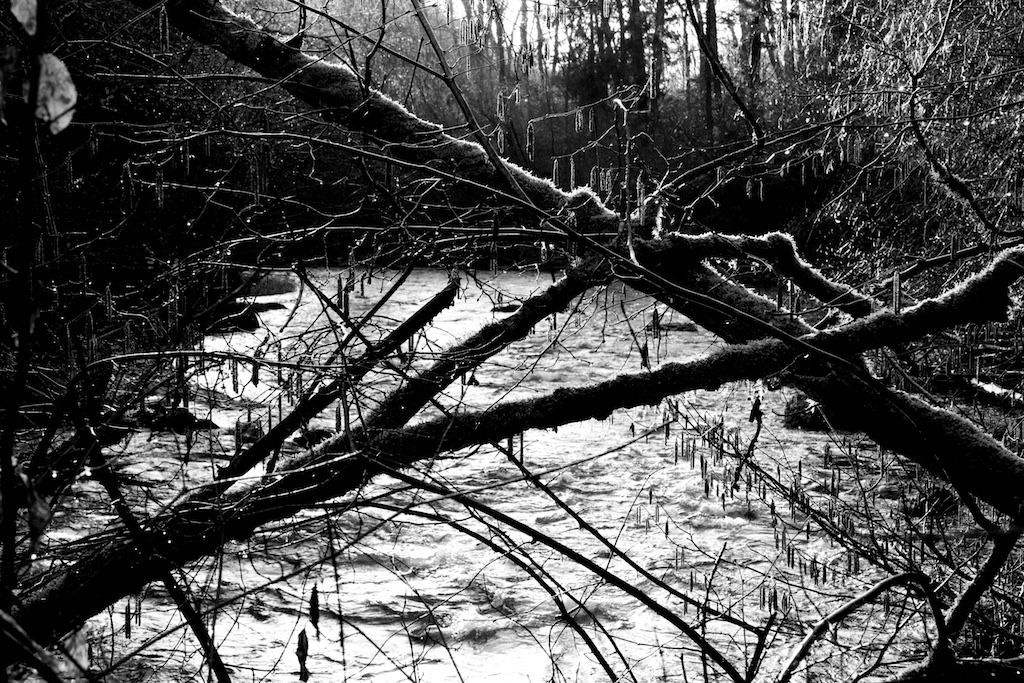
…the sonic presence of Time
Ecology; the pseudo-science of ‘control’ over (human) nature
To the latter one might add; ‘And Natural History would become Eco-logy.’ The Eco-nomics of Nature.
Now in The Netherlands (and other countries in ‘The West’), it is ecologists and environmentalists who force nature to their own image of a ‘system’ that can be ‘managed’ and optimised into a perfect state. This is the key doctrine of all Environmentalism as defined here by Donald Gibson (pg7 2004, ‘Ecology, Ideology and Power’):
Environmentalism is not an attempt to solve specific problems. It is not primarily an effort to protect nature from unnecessary destruction. Environmentalism is a political doctrine. It is an expression of the worldview of certain groups.”
The world-view is secular globalism. The accompanying view on humans and humanity is than mostly negative, as if people are a parasitic dis-ease to ‘Earth’, human resources that need to be managed top-down by The Rule of Experts (see Steffen, Rockstrom et al 2015). This view can be sensed in the writings of modern environmentalists from the America’s like Bill McKibben. (The End of Nature 1988)
The sentiment behind Environmentalism (and Globalism) seems as if ‘they’ -since the post-War period- want to humble us humans by calling us ‘an ape’ (Desmond Morris) or worse. The ape-humans need to be managed in a CO2-cage, ruled by Experts guarding over our ‘Safe Operating Space’.
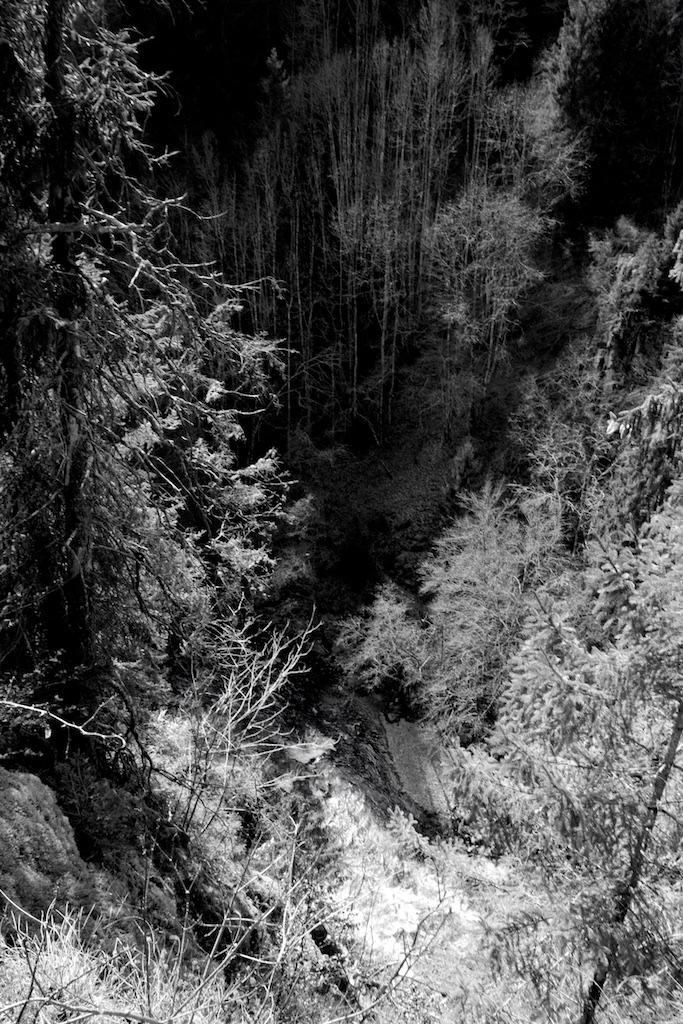
…The Depth of Time at work
For the 24th time this december since the first Rio Earth Conference (1992, when ‘conservation of biological diversity’ was adopted as UN-target) at the UN Climate Conference in Katowice (COP 24), we the Public are creatures that deserve punishment and taxation by World Government.
The Environmentalistas grab for governmental power, and in-so-doing insist on managing Human life on the micro-level, with ‘CO2’ as a cap for ‘Limits’ to growth. Bad Humans need constant telling of us being bad by Green ‘ngo’s, funded with billions of euro’s by governments and ‘Big Philantropy’.
Those ‘Who Know’ gather at the 10 thousands, arriving with private jets, to decide over the other billions, the un-initiated that need top-down management as a ‘human resource’.
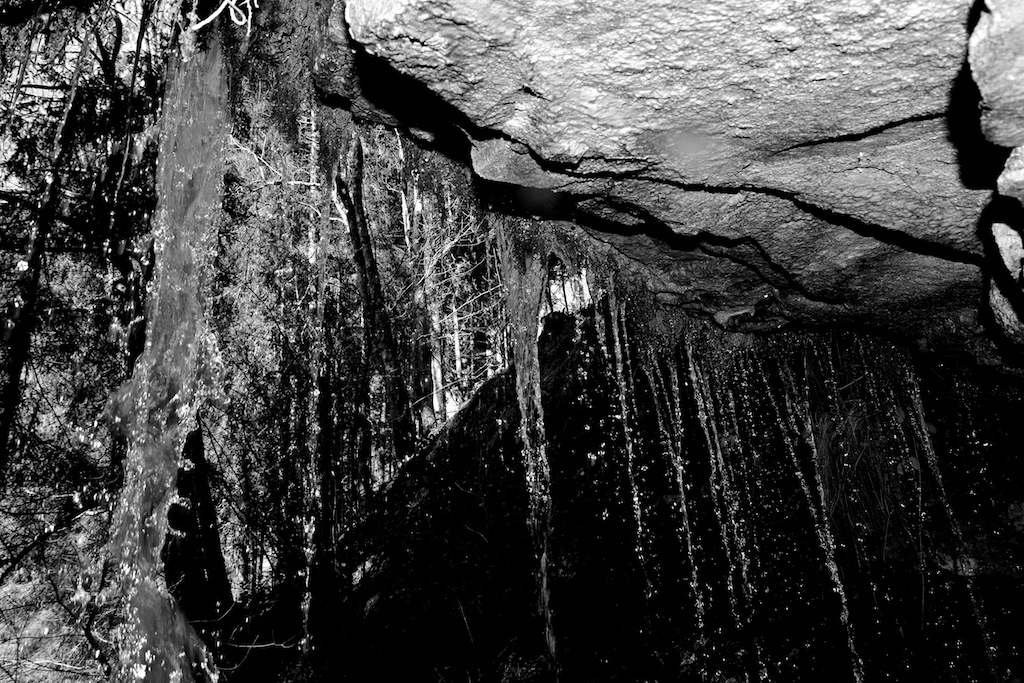
…Slowly but steady eroding, and building…
Thus, the Nature that Emerson contemplated in his essay – a Historical Nature with Time the humbling element evading the full saturation of appetites, ‘Being’ itself- is replaced again by political and economic nature of Man the Hunter Gatherer. The Man that seeks saturation of appetite by dominion over circumstances, including other humans.
We again sense the Baconian desire for control over Nature, and thus also Human Nature to ‘optimise’ world affairs to a techno-topian Ideal. In Ecology and Climatism, we find here the peculiar mixture of Gnosticism (An initiated elite being in possession of ‘higher knowlegde’) and progressivism that pervades since ‘The Enlighenment’.
Green Ngo’s still play the ‘romanticist’ part, with appeal to emotion in their multi-million euro’s of marketing. While in ‘scientific’ reports- part of these campaigns- they portray the future Utopia to be reached. That of ‘pristine’ climate, The New Atlantis of the CO2-cleansed society. Clean Earth.
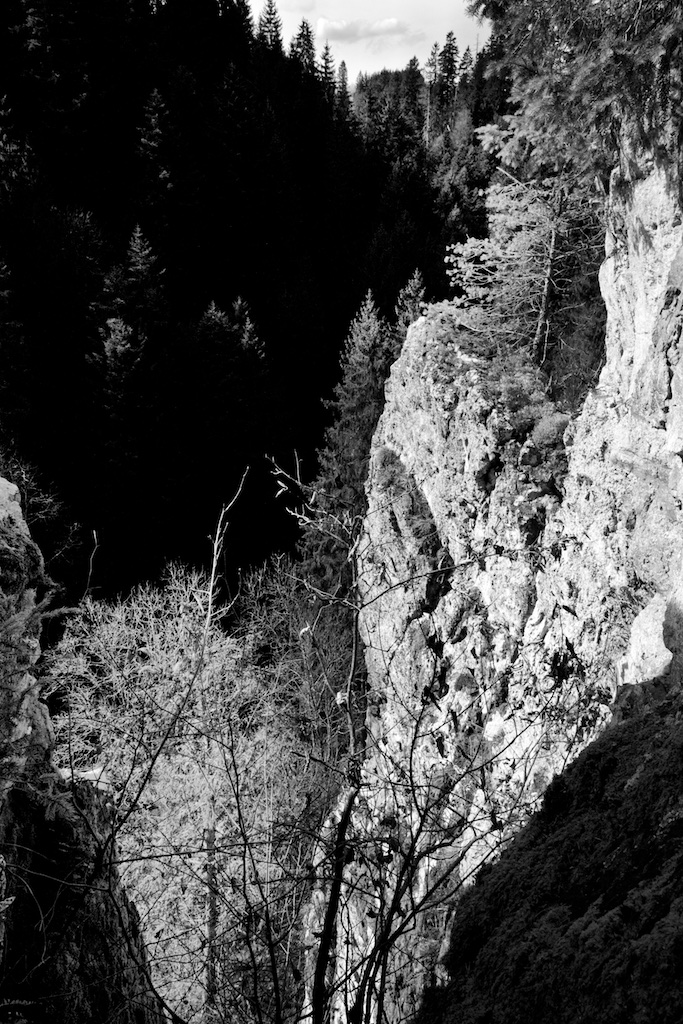
The Gorge cut through the workings of water from the Feldberg
The End of Nature Conservation through ‘ecology’
Ecologists in The Netherlands and their friends at our government-bureaucracy- who pay them- pretend they can -and should – erase the 4th dimension of ‘time’ from the natural picture. They pretend to be able to steer ‘The Ecosystem’ to an Ideal state from the ‘unperfect’ present to a timeless ‘Ideal State’. This Utopia is reached, if they get their 10 digits each on enough tax money for research to establish wat ‘Nature’ really really wants.
These -mostly useless- academics market themselves as The Elite that deserve to be payed by The Public for their Higher Knowledge. Scientism.
This is the Gnostic element, the ecologist as the ‘initiated’ after years of contemplating what ‘the system’ has as it’s preferences. But the laymen can see through the pretensions by asking simple questions. The history is left out of the equation in ‘restoration’; because if you ‘restore’ something, to what historical state should it be rebuilt?
This question can be answered by the historian, and anyone with some knowledge and common sense at work.
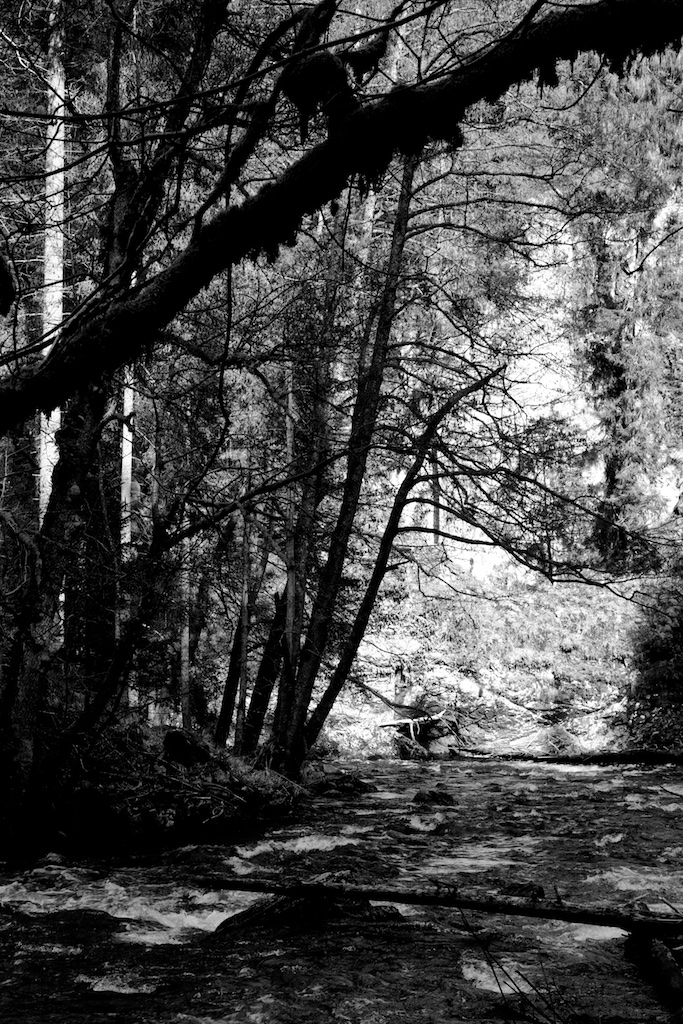
Time eroding the rocks. Eternity erases all ‘quantity’
Any time picked is arbitrary, especially in the human-managed landscapes that make up ‘natural’ areas in The Netherlands. Thus they pretend to be able to make some ‘ideal’ state, once all parameters are known. Because this ideal state of ‘Stable Optimised Nature’ does not exist, ecologists can go on with their research untill hell freezes over.
Thus, those who claim to be the science of ‘Nature’ that Emerson contemplated, the ecologists have become the frenologists and astrologists of nature. Homo Economicus in a Gnostic form.
- It is the element of ‘time’ that makes Emerson lament that the clouds and streams, – despite their beauty – cannot be grasped tot receive complete satisfaction.
And Emerson is rightly so. As both the desire to, and the failure to hold on to a ‘perfect state’ is a basic human condition to be identified. Time eliminates the ‘perfect’, eternity obliterates ‘quantity’. Thus the pretension that a perfect ‘system’ of even ‘climate’ can be managed is doomed to become one of the many secular utopia’s, from the French Revolution (1789) to the Killing Fields of Pol Pot.
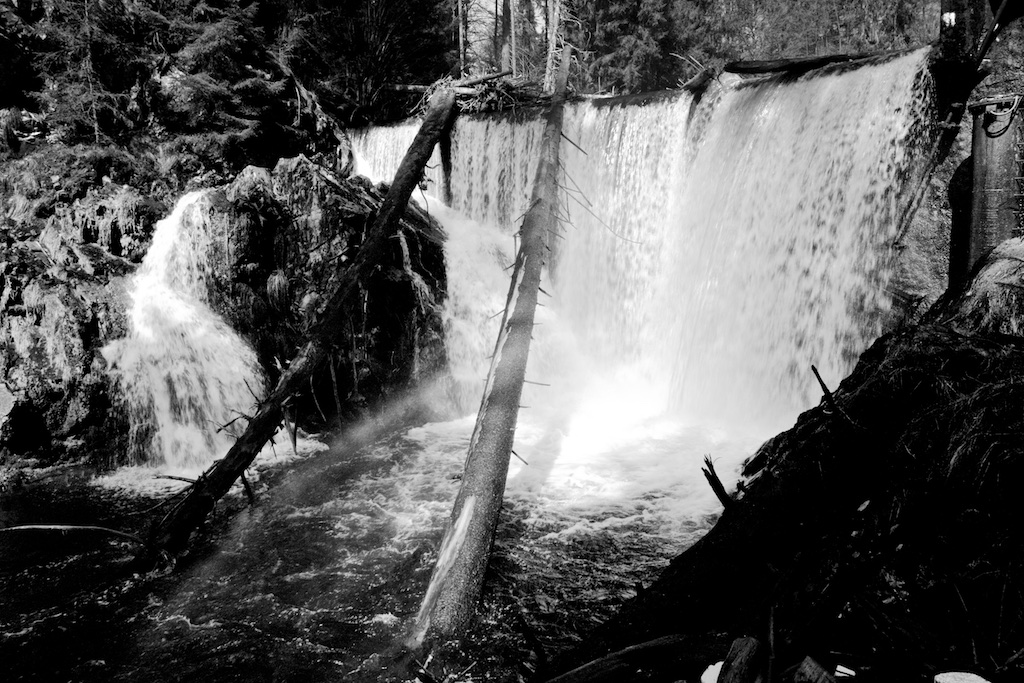
…the dam built for hydropower generation
The Nature Managers and their ‘System’
With the adoption of the term ‘ecosystem’ (Tansley 1935) we may sense a taste of Le Homme Machine (De La Mettrie), atheist materialism and it’s 2-dimentional world-view.
And with a Baconian appetite to ‘control’ nature, like man the agriculturalist. A ‘system’ as a machine that can be optimised if the right metrics and quantities are known. We find the ‘Balance of Nature’-belief that is still present in the writings of Eugene Odum. But we then add cybernetics (Howard Odum) to the picture.
Thus we arrive at the current technocratic doctrine of ‘environmentalism’ where ‘a safe climate’, the processes of ‘the weather’ can be engineered to an optimum state.
Nature Restoration in The Netherlands means that one reshapes nature to a bureaucratic image, imprinted in more than 130 ‘habitat codes’ and ‘targets’ to be achieved. If dunes have naturally through time been overgrown by forests, than ‘nature developers’ raise the alarm.
Ecological ‘advisory’ bureaus like Arcadis then recreate the sand-dunes to the Arcadia on paper, designed by engineers and architects. They talk of the ‘restoration’ of ‘natural processes’, and act as the posessors of some ‘knowledge of the initiated’. Ofcourse, ‘natural processes’ are not more than ‘Time’ at work, Being, it is a sophistry to pose as ‘The Knowledgable’; only the ‘initiated’ are entrusted with spending public money for private gain.
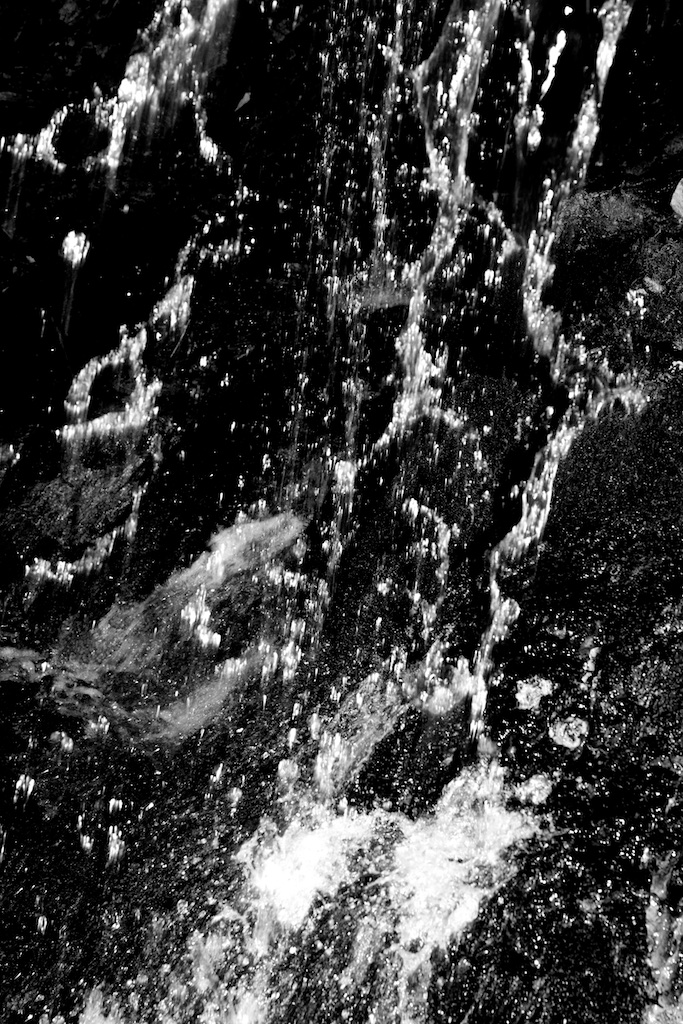
The flow of Time
With heavy machinery than the ‘nature restoration’ starts, shovels dig pools to ‘restore’ waters for a species that is labeled ‘critical’. Or they remove the vegetation to recreate the barren sands of the desired Arcadia, of which exact amounts of hectares are defined before the government is satisfied. Thus even ‘natural processes’ are claimed to be ‘restored’.
Chain saws move in to restore the Dune-forest to the bureaucratic amount put in the ‘Nature Design Plan’. As much forest as possible is cut for commercial purposes, because the government subsidises ‘biomass’-plants. These targets mean the burning thousands of hectares of forest per year to meet ‘climate targets’, paid with billions of subsidies.
At present, only 1 percent of all forests in The Netherlands is left to it’s own device sinds 1987; the Forest Reserves. The rest is under heavy exploitation by ‘nature conservationists’ who encourage mass tourism. 
Pilgrimage to the Black Forest; Nature left to it’s own device
And thus I fled to the Black Forest, the Wutachschlucht to find a Cathedral of Nature, as a pilgrimage to Nature that is left to it’s own device. Nature with no human pretensions or interpretations; a gorge near the largest mountain of the Schwaben-land (Sueven), the Feldberg. It’s meltwater ate it’s way in the rocks.
The Wutach means ‘the angry river’, just as Aachen was built along a stream and a Bach means a smal stream. The gorge was one of the first natural reserves in Germany protected under the Nature Law of 1935 erected by ‘man the hunter’ Reichsjagermeister Herman Goering.
This does not mean that ‘thus wilderness protection is bad’ because the nazi’s pioneered in many ecological concepts like the ‘Dauerwald’. It means the Germans had good taste, They too, like Waldo Emerson wanted to replenish their senses with the experience of Nature untouched, only trampled on footpaths by the shoes of many ‘Wandervogel’.

150 year old spruces uncut
As a cathedral where candles are lit and something of ‘The Sacred’ can be sensed. No chainsaws, but over 150 year old spruces. No nature managers. And the continuous sound of streams, water afloat, licking some of the Mater-ial (mother) from the stones as a sonic testimony of Time at work.
Transcendalist Emerson. Time transcends all our workings.
Some regard Emerson as a Pantheist, finding God in Matter itself (Tellus Mater = The Mother Earth of the Romans). This description is suggestive of the 3-dimensional worldview of Atheism where ‘conciousness’ is confined to the 1500cc of the human skull. But in his essay Nature we may read more common ground with Scripture, where Moses is called by ‘God’ and JHWH is announcing him his arrival and thus cover his face.
But God is not IN the wind, as Transcendent form.
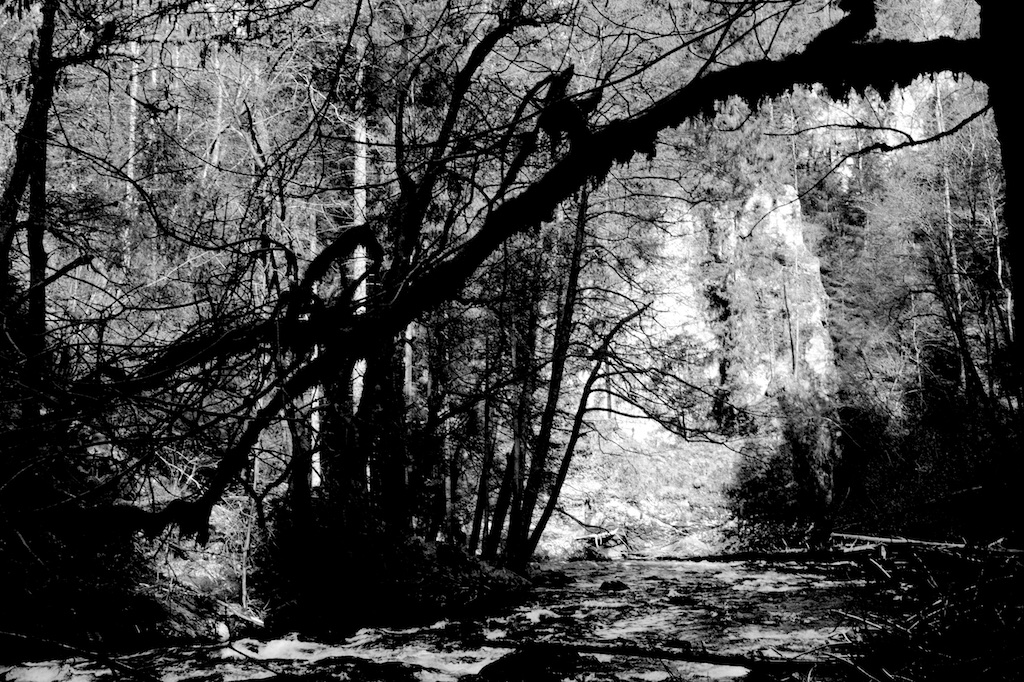
….time passing by, Being
It is – to my taste- the same observation we find in ‘Nature’ of Emerson, but in a different phrasing. If we imagine ‘satisfaction’ like orgasm or satiation of the gastric appetite and thus the Material senses (‘Mater’ = ‘mother’, female), the 3D-world:
Quite analogous to the deceits in life, there is, as might be expected, a similar effect on the eye from the face of external nature. There is in woods and waters a certain enticement and flattery, together with a failure to yield a present satisfaction.
This disappointment is felt in every landscape. I have seen the softness and beauty of the summer-clouds floating feathery overhead, enjoying, as it seemed, their height and privilege of motion, whilst yet they appeared not so much the drapery of this place and hour, as forelooking to some pavilions and gardens of festivity beyond.
It is an odd jealousy: but the poet finds himself not near enough to his object. The pine-tree, the river, the bank of flowers before him, does not seem to be nature.
Nature is still elsewhere.
….The Cathedral with candles
The Angry Stream washing away Secular Globalism
Like The Snow in my Hand (My favourite ‘My Dying Bride’-metalsong) it is as Time itself passing by. We sense it’s presence, but loose grip when we want to take hold of it. The Perfect State remains out of reach, because Time rips it from our hands.
Therefore I advocate the replacement of the politically laden term ‘Ecology’ to the old-fashioned and more neutral ‘Natural History’. The element of Time is the humbling part of Nature, itself being another word for ‘Being.’
Our temporal presence is more humbling than taxation of the public, and 24 United Nations Climate Buffets for private gain at public costs. The tiring litanies of environmentalists, regurgitating for 50 years since the Club of Rome that it is ‘2 minutes to 12’ and that we the public need governmental punishment. As if time has stood still for half a century in the universe of Environmentalism.
‘Biodiversity’ – invented in 1986- in Nature Conservation sounds a lot like ‘diversity’ in ‘multiculturalism’; some diversity is more diverse than others, and a new World Government is the arbiter. (Convention on Biological Diversity).
Time’s up for Secular Globalism and it’s Environmentalist Acolites; may your self-righteous mouths be silenced by the The Good, The Divine, The Beautifull and Holy.
We who embrace Nature, Being, Beauty, choose reality embedded in local traditions and places to enclose all before us. Instead of being obsessed by ‘The Future’ and ‘The World’, we thank what others in the flow of Time have reached out before us to preserve. We are the living connections with things to come. We revere at the cathedral of a ‘Schlucht’ where the sonic presence of Time is heard in the flows of the ‘Angry Stream’.
We do not need more over-population in the name of ‘safe migration’, cultural obliteration in the name of ‘multiculturalism’, taxation in the name of Safe Climate. May the angry stream wash you secular globalists, marxists, Luciferians away to the ash-heaps of history, destroy you and disperse you. And let the new age of Conservation arrive for those who still do what all ‘the science’ in the world cannot grasp.
To those who Care….
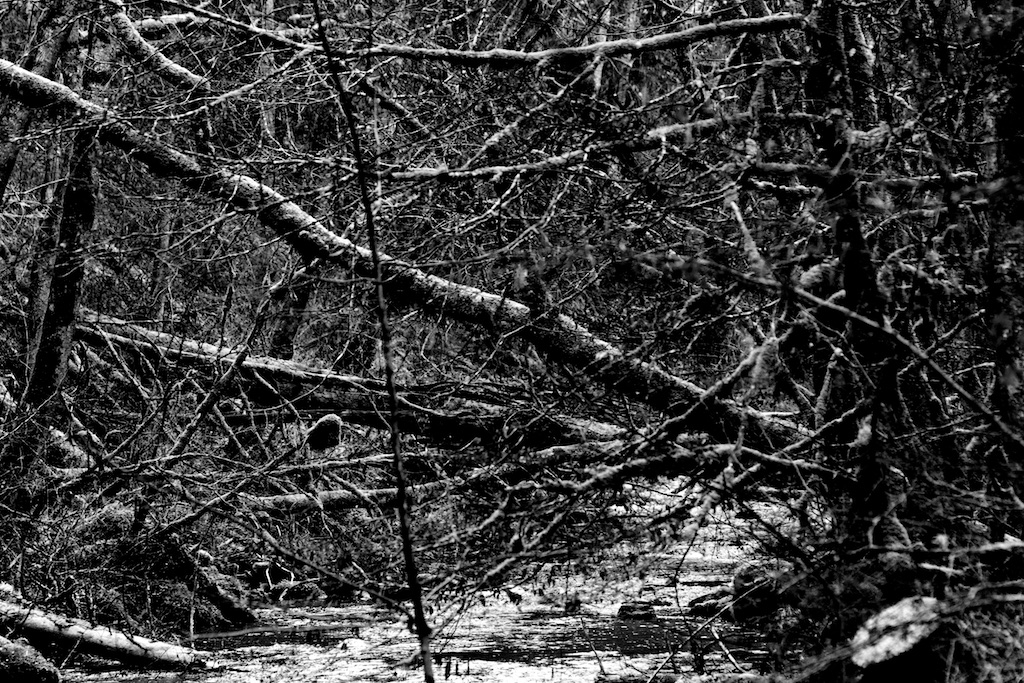
…
PS: The idea of tourism as secular pilgrimage is derived from a lecture by biologist Rupert Sheldrake, author of The Science Delusion; his attack on Atheist Materialism and the pretension that ‘science’ and materialism are two of a kind.
- support my work by donating to Stichting MW&B. IBAN NL04INGB 0005526038 ‘Interesting Times’
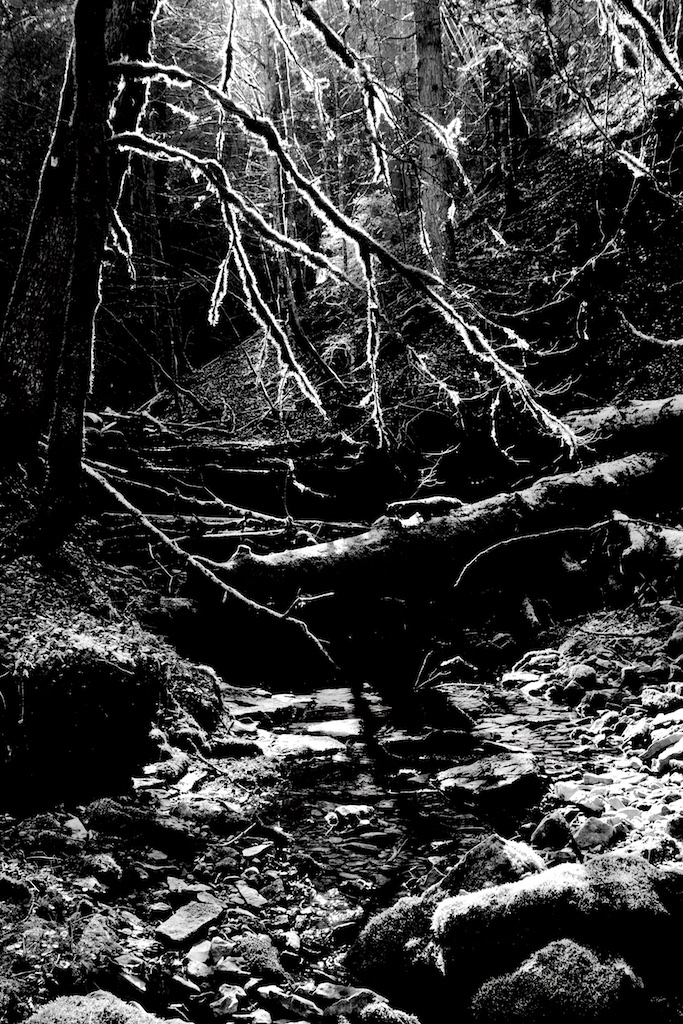
Rypke, je journalistieke artikelen beginnen met een leuke waarneming, maar eindigen met fulmineren over het kwaad, nl. de ecologen elite die samenspannend met het liberale groot kapitaal de wereld naar hun hand zetten. Terecht dat je sommigen de spiegel voorhoudt over verantwoordelijkheid, in de zin van zelf wat meer in de modder gaan staan. Ik zou het nog meer waarderen als je daar meer overschrijft, verantwoordelijkheid nemen. Hoe doe je dat? Waar kies je dan voor? Als mens, groep, society. Daar ben ik nieuwsgierig naar, dat anderen alles foutdoen wist ik al.
@RE Zeegers, nou zeg ’t maar; als je het artikel goed begreep zag je al voldoende hints
De term ‘journalistieke artikelen’ bij een essay als dit- dat je zelf nooit zo had kunnen schrijven- lijkt daarnaast bedoeld als belediging, alsof je zelf in van die academische blaadjes publiceert waar de Pal Review en Group Think bepalen wat wel en niet geaccepteerd wordt, en alsof dat dan hoger staat.
Ook bezig je termen als ‘fulmineren’ om te doen alsof ik dus op een lager plan sta dan jij, die blijkbaar een betere stijl van communiceren heeft. (lazer toch op… 🙂 )
Nee, je staat niet op een hoger platform dan ik; probeer dan met leestips, praktijkvoorbeelden aan te geven wat je bedoelt, een getuigenis van ‘kijk mij eens, ik die het overzicht heeft’ overtuigt wel van je narcisme maar niet van je inhoudelijke voorsprong…
Dikke kans dat je op afstand niet de kennis hebt over dit onderwerp, die ik wel heb…